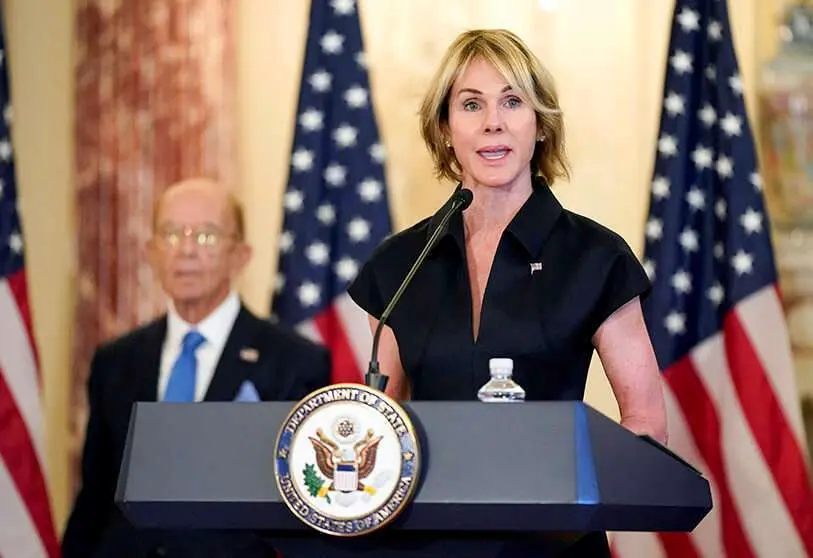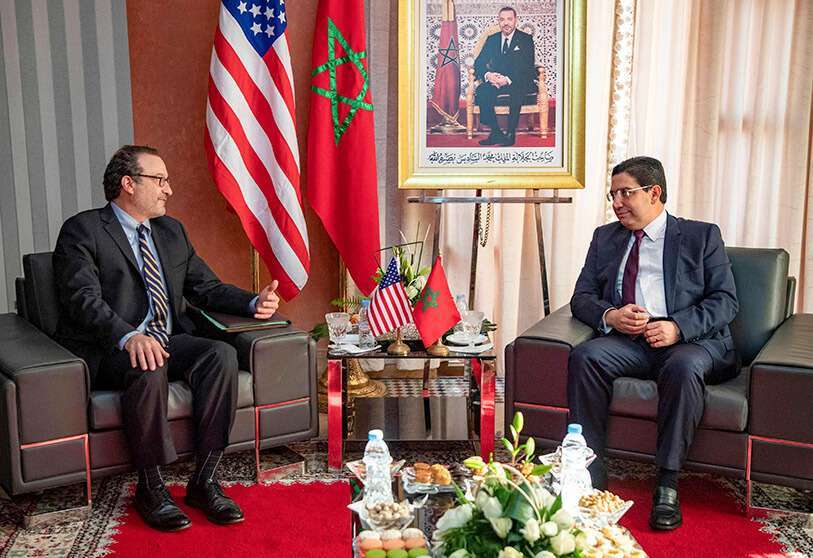Estados Unidos distribuye en Naciones Unidas la proclamación del reconocimiento del Sáhara como territorio marroquí

The United States' permanent ambassador to the United Nations, Kelly Craft, gave assurances that the resolution issued last December by the hitherto President of the United States, Donald Trump, recognising Morocco's sovereignty over the Sahara had been distributed as an official document of the Security Council to the other Member States.
The text was accompanied by a letter in which he pointed out that on 10 December 2020, when the Trump Administration made the controversial announcement, it recognised that the entire territory of Western Sahara 'is part of the Kingdom of Morocco'.
The letter, expressly addressed to the President of the Security Council and also sent to the UN Secretary General, António Guterres, stresses that the Moroccan proposal for autonomy 'is the only basis for a fair and lasting solution that will put an end to the dispute over the territory of Western Sahara'.
The communiqué presented by the United States last December stated that "an independent Saharawi state is not a realistic option for resolving the conflict. Autonomy is the only possible solution". On the basis of this position, they encouraged the parties to enter into negotiations, using the autonomy plan defended by Morocco as the negotiating framework to achieve "a mutually acceptable solution".

The publication of the US ambassador's letter comes shortly after the Moroccan foreign minister, Nasser Bourita, and the deputy secretary for the Middle East and North Africa, David Schenker, chaired a ministerial conference to discuss the autonomy plan, in which 40 countries took part.
The United States has continued its policy of recognition by seeking to strengthen economic ties with Morocco by establishing a consulate in the Saharan city of Dakhla.
On 10 January, two days before the end of Trump's presidency, the US ambassador to Morocco, David Fischer, and the aforementioned deputy secretary, David Schenker, visited Dakhla, in what was the first time in history that US diplomats officially visited the important port city.
The US Embassy in Morocco stated on its Twitter account that it was "a historic day for the strong friendship" between the two countries.
Washington's support for Rabat on the Saharan question is understood in the context of the United States' search for Arab countries to recognise Israel and normalise diplomatic relations with its biggest ally in the Middle East.
Shortly after Donald Trump's decision became known, his former National Security Adviser, John Bolton, asked the president-elect Joe Biden to revoke the recognition of the Sahara as Moroccan territory, claiming that it was "a mistake that the new Administration should correct". This position was also held by a sector of the Republican Party that did not consider recognition to be necessary for Morocco to reach an agreement with Israel, which in its opinion was already well under way.

When Biden takes up residence in the White House, he will have to decide whether to continue with the step taken by Trump or to backtrack and continue with the policy pursued by the previous administrations. It is not yet known what position he will adopt, particularly as, at least at the beginning of his term, he will be more focused on domestic policy than on foreign affairs.
The decision to recognise Western Sahara as Moroccan territory joins other last-minute measures taken by the Trump Administration in the last weeks of its mandate, which are seen as an attempt to pacify the Middle East.
In addition to the question of the Sahara, there is the inclusion of Cuba on the list of state sponsors of terrorism, the increase in sanctions against Iran, the accusation against China of committing genocide against the Uighurs in Xinjiang, the designation of the Hutu rebels in Yemen as a terrorist organisation, and the removal of restrictions on official contacts between senior Taiwanese and US officials.








